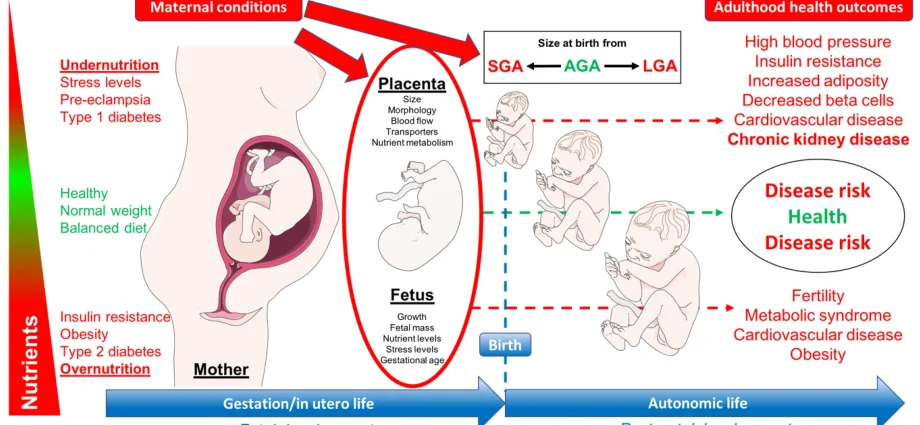Insufficient protein intake during pregnancy can lead to skeletal muscle atrophy in both mother and male offspring, reports the British Journal of Nutrition.
Researchers from the University of Illinois (USA) have identified the mechanism responsible for the penetration and “writing” of genetic changes in the fetal cells, and thus increasing the risk of low birth weight and health problems in adulthood.
“Detecting protein deficiency biomarkers in the early stages of pregnancy could help make necessary dietary changes and prevent negative effects,” said Dr. Huan Wang, author of the study.
Insufficient protein intake triggers the so-called AAR response (amino acid response), which in turn stimulates the process of autophagocytosis (digestion by the cell of dead and damaged elements of its structure) and atrophy (atrophy) of skeletal muscles.
Dr. Wang studied rats that consumed varying amounts of protein during pregnancy. After the birth of the young, all rodents received the same balanced food. The researchers found that the females that consumed the least protein gained less weight during pregnancy, and their offspring were smaller. Both females and their offspring showed signs of muscle atrophy. Changes were also seen in the level of important amino acids in the blood plasma, suggesting disturbances in protein metabolism.
In addition, rodents consuming too little protein showed increased expression of ATF4, which weakens the synthesis of proteins in skeletal muscles, causing their weakness and atrophy. The same overexpression occurred in the offspring, but only in the male.
“Apparently, female offspring are more resistant to the effects of autophagocytosis,” comments de Wang. Perhaps further research will help explain why this is happening.










